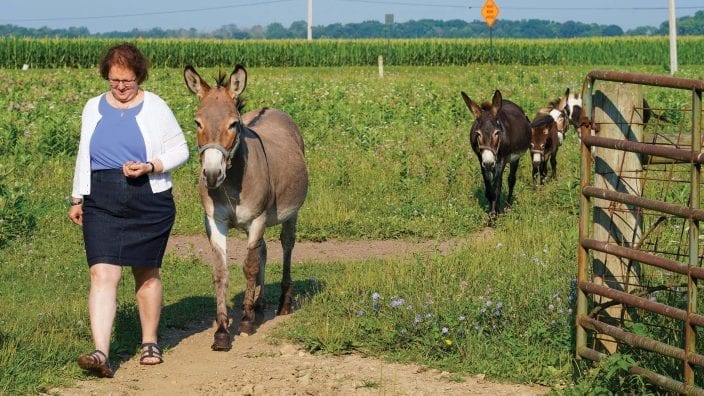Applications for Ohio Farm Bureau Health Plans now available
Members have three ways to apply: contacting a certified agent, calling 833-468-4280 or visiting ohiofarmbureauhealthplans.org.
Read More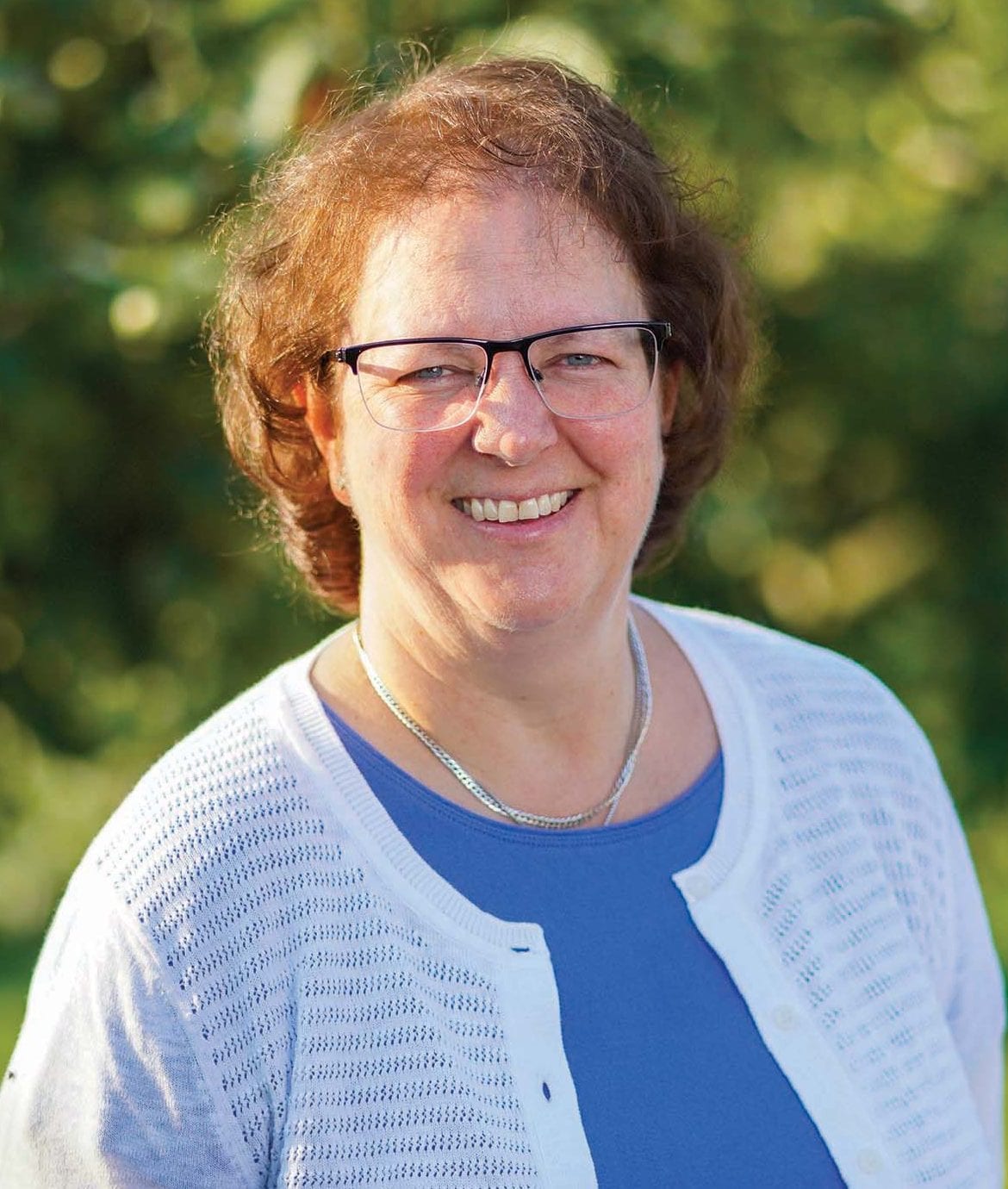
Vetting outside groups who want to speak to students is critical
“Oh my gosh. I’m not going to eat meat anymore because of all the horrible things that’s going on at farms.”
The student’s declaration stopped Madison County Farm Bureau member Daphne Hedgecock dead in her tracks. It was such an uncharacteristic statement from the student. Hedgecock, a farmer and teacher at Central Crossing High School in Grove City, knew something was wrong. She quickly questioned the student where she had heard this misinformation about farmers abusing their animals. The response startled her —it came from an activist who had recently done a presentation in one of the classrooms there under the guise of talking about a different topic.
“I said ‘If your dog is sick, you take it to the doctor to be treated. Why wouldn’t I take my animal to the doctor to make sure it’s OK? I know how long it takes chemicals to work their way out and if the meat is safe to eat,’” she said. “The girl looked at me and said ‘Ohhhh.’ That’s when it clicked in.”“I said ‘Step back. Let me tell you my side of the story. I don’t want my animals mistreated; I care for them,’” Hedgecock recalled saying. When the student pressed on, questioning antibiotic use in livestock, Hedgecock, a family and consumer science teacher, jumped in with an example that would resonate with the student who was unfamiliar with how her food is raised.
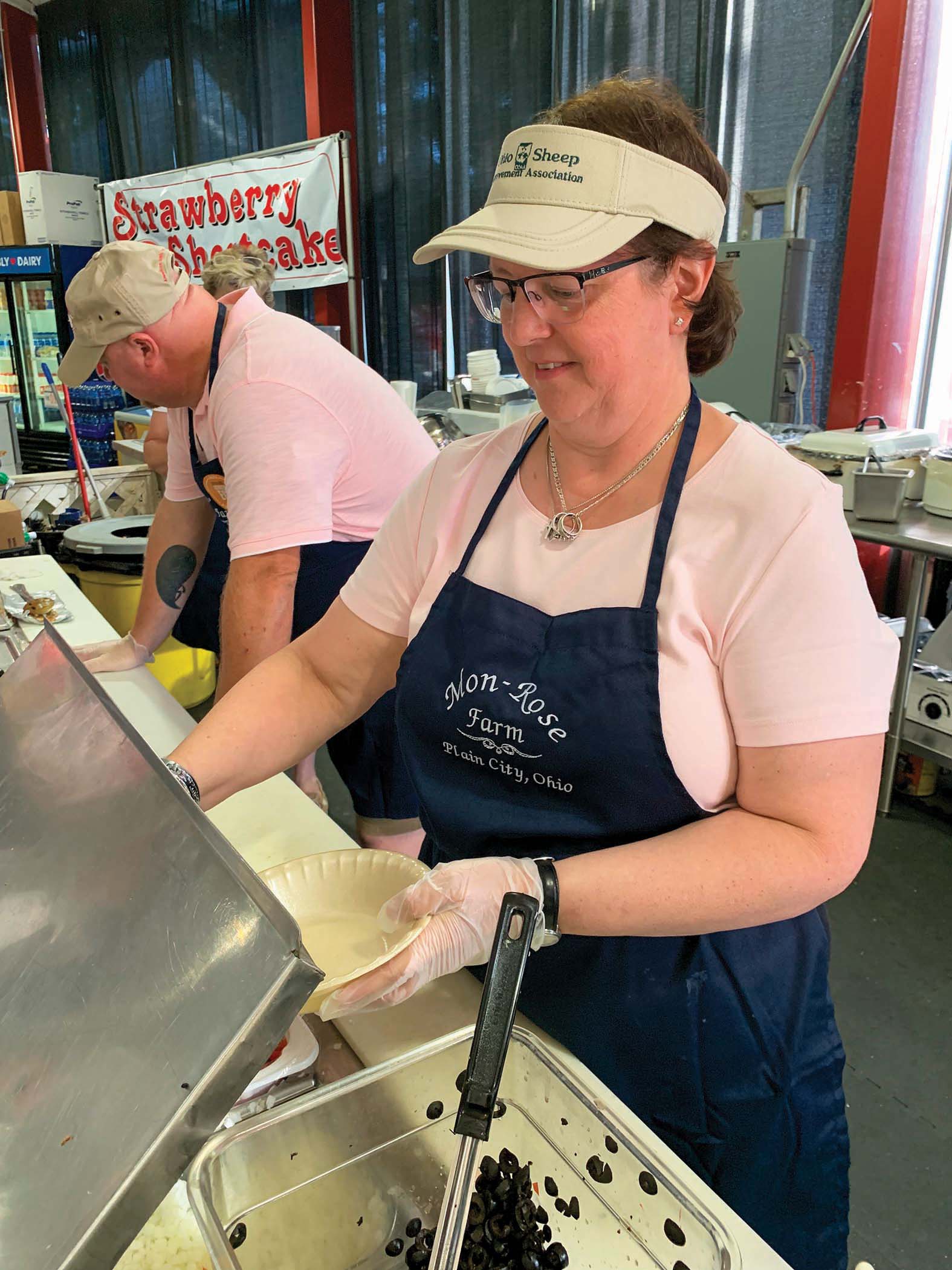
After talking to more students who had seen the presentation, Hedgecock became so alarmed that she warned other teachers about the group’s true mission — to attack modern animal production and push a plant-based eating agenda. Hedgecock reached out to Ohio Farm Bureau to express her concern about how aggressive some activist groups have been in trying to get into urban and suburban classrooms to push their message. Last year a group emailed Hedgecock about 20 times requesting to do a presentation, which it said would support Ohio’s academic standards for high school. The testimonials and list of school presentations was impressive.
But Hedgecock was suspicious. She asked for more information about the presentation and realized it would be a direct attack of her century family farm where she raises chickens, cattle, sheep, donkeys and hogs.
“Students are being told their meat comes from large farms that mistreat animals and that farmers are poisoning them with chemicals, GMO plants and animals. They’re being told that animals are beaten to death in order to be harvested when in reality it’s very humanely done,” she said.
As a farmer and teacher, Hedgecock does her best to present a balanced view of agriculture by talking about her own experience raising livestock.
“The students trust me when I say ‘Do you think I’d ever hurt my animals?’ That’s because they know me and trust me. I’ve built a rapport with them and am constantly talking about the farm,” she said. “It’s critical that we make sure we’re telling our side of the story because somebody is out there telling it for us, and they’re hitting more urban areas because those kids don’t live on farms.”
For another perspective about the importance of sharing the facts about agriculture, visit ofb.ag/ag-facts.
Tips for requesting an outside presenter
As a teacher for 32 years, Hedgecock has a feel for what may turn into a biased presentation by a group. She provided some tips on what teachers should look for when considering a request by a food/nutrition, ethics or other expert to do a classroom presentation.
Featured Image: Daphne Hedgecock leads a donkey on her family farm in Madison County.


Members have three ways to apply: contacting a certified agent, calling 833-468-4280 or visiting ohiofarmbureauhealthplans.org.
Read More

Legacy nutrient deductions enable new farmland owners to claim deductions on the nutrients within the soil on which healthy crops depend.
Read More

Farmers, agribusinesses and community members are encouraged to nominate their local fire departments for Nationwide’s Nominate Your Fire Department Contest through April 30.
Read More

Introduced by Sen. Paula Hicks-Hudson, SB 120 would establish the Urban Farmer Youth Initiative Pilot Program.
Read More

Gases, vapors, and fumes can all create risk. How can we measure and protect ourselves from them?
Read More

The Ohio Farm Bureau’s Young Agricultural Professionals State Committee has named its 2026 leadership and the individuals who will be serving on the state committee for 2026-2028.
Read More

The Ohio Farm Bureau Foundation has multiple scholarships available to Ohio students from rural, suburban and urban communities who are pursuing degrees with a connection to the agricultural industry.
Read More

With 100% bonus depreciation now permanent, farmers can deduct the full cost of a new agricultural building in the year it’s placed in service.
Read More
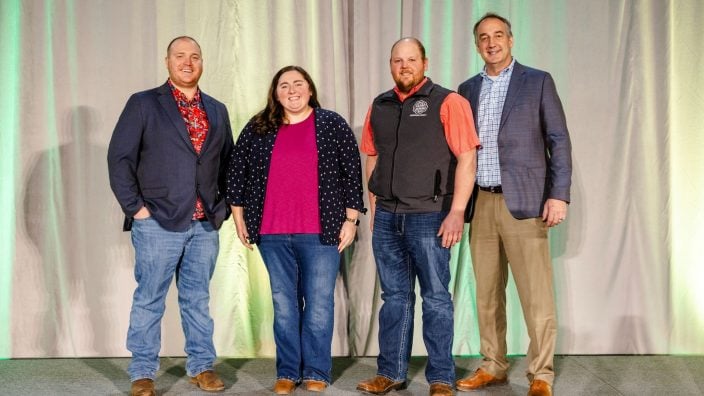
Lincoln Deitrick was named the Outstanding Young Farmer, Denver Davis won the Excellence in Agriculture Award, and Margaret Houts won the Discussion Meet.
Read More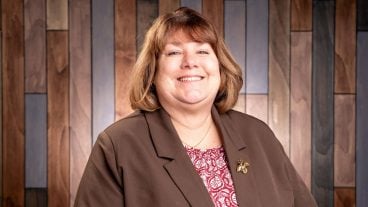
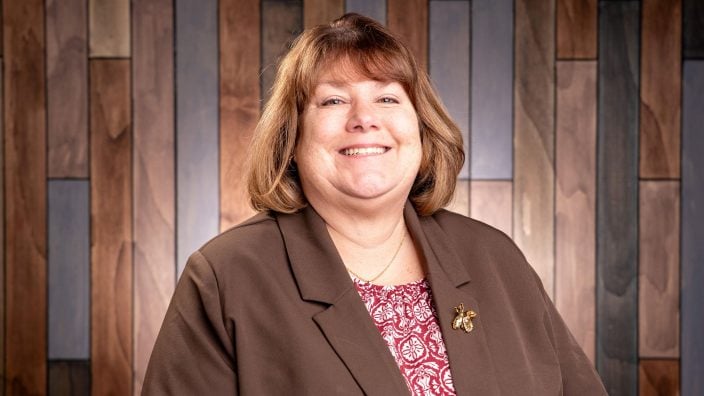
Michelle Downing of Franklin County has been named finance director of county operations for Ohio Farm Bureau.
Read More